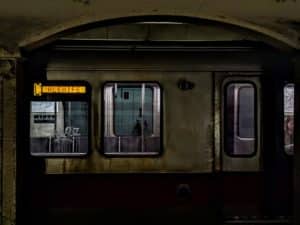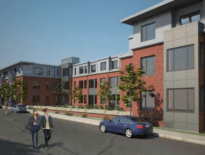The MBTA’s decision to implement system-wide subway slowdowns Thursday night was prompted by insufficient documentation of inspections, which the T’s interim general manager said could signal unidentified issues with the tracks.
Following the late-night announcement of speed restrictions across the system, Interim General Manager Jeff Gonneville said Friday morning only the Green and Mattapan Lines are operating with end-to-end slow zones, defined as 10 to 25 miles per hour.
The Blue, Orange and Red lines no longer have total speed restrictions, so trains in some areas may be allowed to normal 18 to 40 mile per hour speed, are now operating with “local” slow zones in specific stretches.
MBTA spokesperson Joe Pesaturo did not answer what percentage of these lines were operating on slow zones, but he confirmed that it is more than usual.
“This decision that we made yesterday to slow the trains down globally was done out of an abundance of caution for [rider] safety,” Gonneville said at a press conference Friday morning.
According to TransitMatters’ MBTA data dashboard, inbound trips on the Orange Line’s southern half were the worst affected by this morning’s slowdown. The median ravel times from Forest Hills to Downtown Crossing rose 46 percent between Wednesday and Friday morning, with inbound trips from Oak Grove to Downtown Crossing taking 25 percent longer. On the Red Line, trips from Alewife to Downtown Crossing were 15 percent slower and journeys from Braintree to Downtown Crossing were 13 percent slower. On the Green Line, the B, C and E branches saw little impact, but journeys from Newton’s Riverside station on the D line to Park Street were 26 percent slower, and trips from Medford/Tufts to Park Street were 9 percent slower.
Data on the Union Square branch was not available, and a power problem on the Blue Line Friday morning caused trains on a large portion of that line to be replaced by shuttle buses.
No Word on End to Delays
The T has six teams of workers and consulting engineers inspecting tracks and said they will need until Monday to validate repairs and verify speeds. Pesaturo said Friday morning additional updates would be forthcoming, but not when T riders can expect them.
MBTA officials announced late Thursday night they would immediately impose speed restrictions across all four subway lines this morning following a Department of Public Utilities site visit, an unprecedented step that caused immediate disruptions for riders.
The DPU serves as the designated state agency responsible for safety oversight of the T. When Federal Transit Administration investigators flagged widespread problems at the MBTA last year, they also criticized the DPU for falling short on its oversight responsibilities.
The late-night announcement follows months of intense scrutiny on the T’s safety failures fueled in part by the federal probe, which found staffing shortages, a deferred maintenance backlog and other issues.
One sign of the deferred maintenance: As of Jan. 31, 2023, a total of 8.7 miles of track across the MBTA’s Red, Blue, Orange and Green Lines, representing 6.5 percent of the system, had some kind of restriction in place limiting speeds to anywhere between 25 mph and 3 mph.
On top of the slow zones, a shortage of workers – first train dispatchers and now train operators – has dramatically dropped subway frequencies and rendered trains unpredictable.
Advocates Applaud – and Critique
Business-backed advocacy group A Better City gave the decision a mixed review.
“Frustration is at an all-time high and patience is at an all-time low for employees and employers alike,” Kate Dineen, chief operating officer and incoming CEO, said in a statement. “Continued safety findings and service disruptions are making it even more difficult for people to live, work, and visit Greater Boston. We appreciate the state’s enhanced safety auditing protocols and improved transparency, but we remain deeply concerned by the safety and state of good repair issues that continue to plague the system”
The group “expects the T to provide the public with frequent updates on completing the urgent inspections and trackwork, as well as the referenced investigation into troubling documentation gaps and inconsistencies,” Dineen said.
Advocacy group TransitMatters applauded Gonneville for acting quickly and transparently about the uncertainty around track conditions.
“We are also happy to see that new leadership at the Department of Public Utilities is stepping up oversight efforts after decades of inaction. Steps like these are critical to regaining rider confidence and FTA approval,” the group said. “However, riders deserve quality service. Riders are unfairly bearing the burden of decades of neglect and underfunding. It is critical that leaders on Beacon Hill treat the T’s issues as an emergency. The system is in crisis and, nearly a year after the FTA notified the agency that they would be taking over safety oversight, no end is in sight.”
TransitMatters said the T’s “current pace of slow zones, poorly run diversions, and long headways are untenable” and risk permanently driving away riders. It urged the transit agency to hold responsible the staff members who approved the now-suspect track inspection reports, and for the Healey administration to appoint new members to the MBTA’s board of directors who will be “active and engaged” with finding solutions to the T’s problems, similar to the prior Fiscal and Management Control Board.
This story has been updated with additional information from a 10:25 a.m. press conference given by interim MBTA General Manger Jeff Gonneville and comment from A Better City and TransitMatters.




 |
| 


